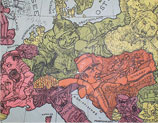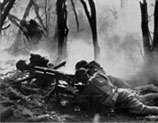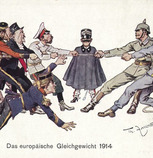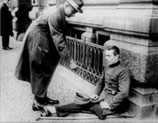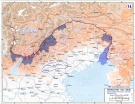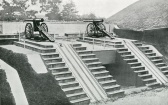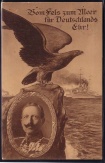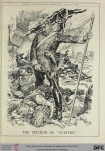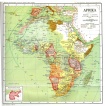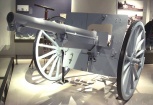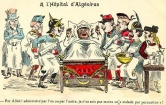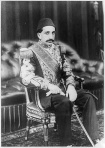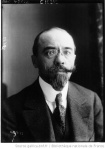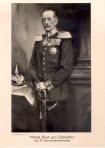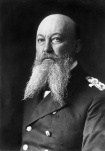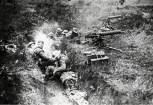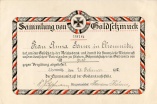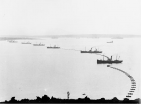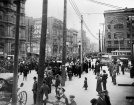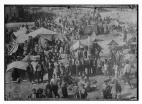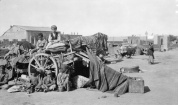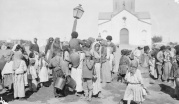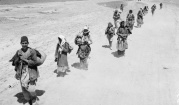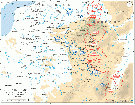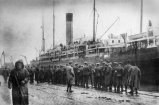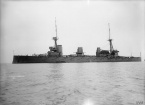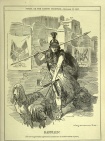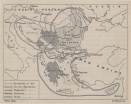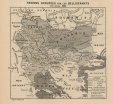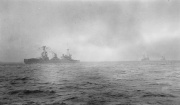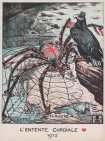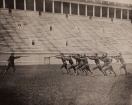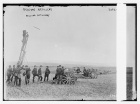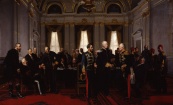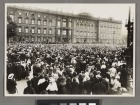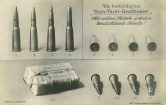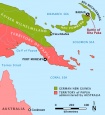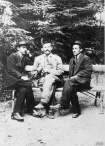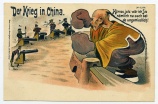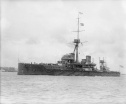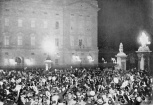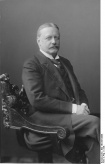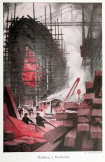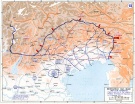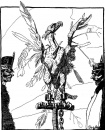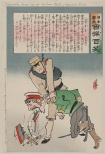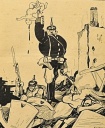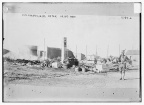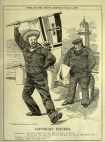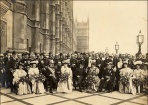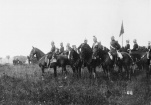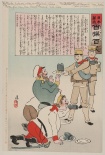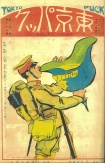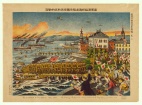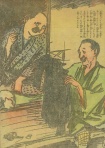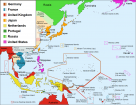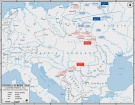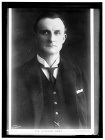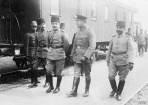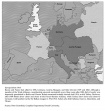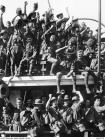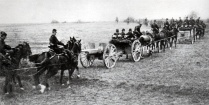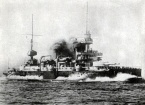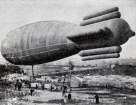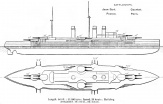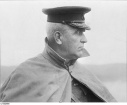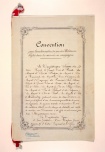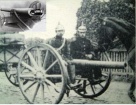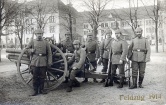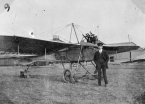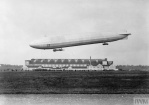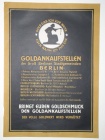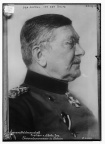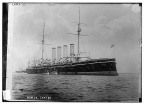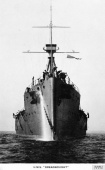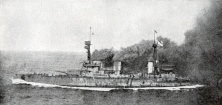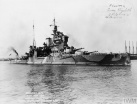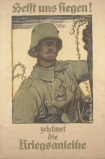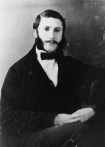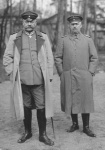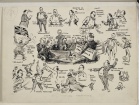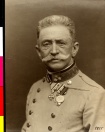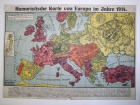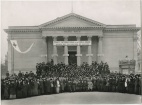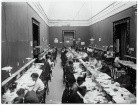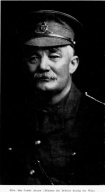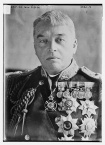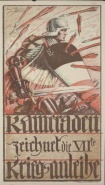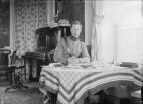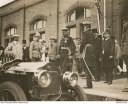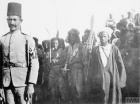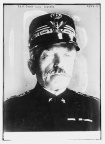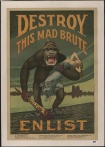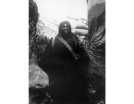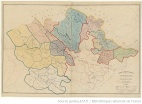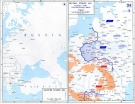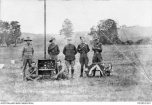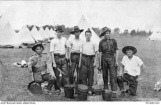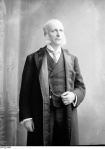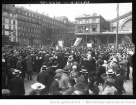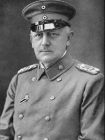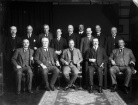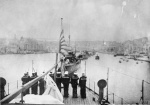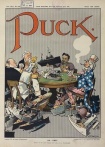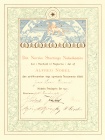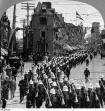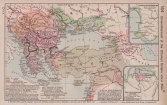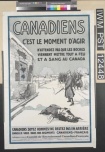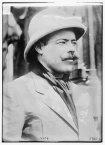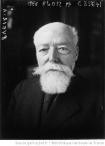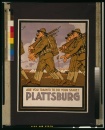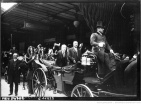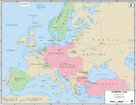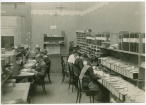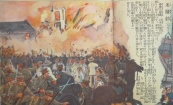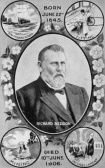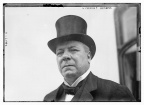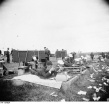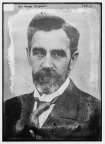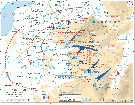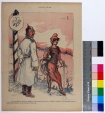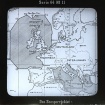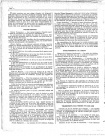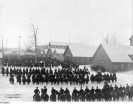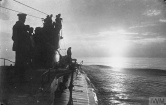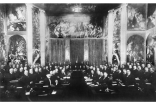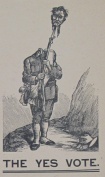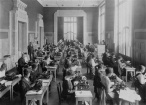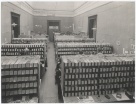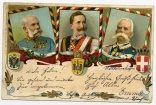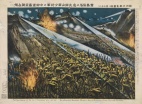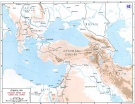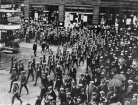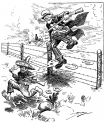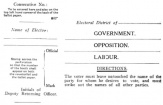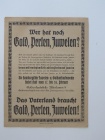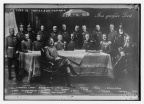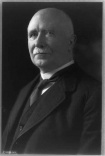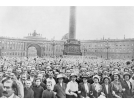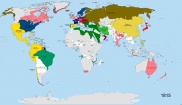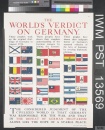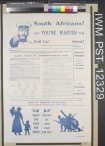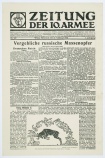Themes Pre-war
Survey Articles (Thematic)
- Alliance System 1914
- Arms Race prior to 1914, Armament Policy
- Colonial Policy, Colonial Conflicts and War before 1914
- Controversy: The Media's Responsibility for Crises and Conflicts in the Age of Imperialism
- Economic Planning before 1914
- Imagined War
- Imperialism
- International Law and the Laws of War
- July Crisis 1914
- Militarism
- Nationalism
- Pre-war Military Planning
- The Historiography of the Origins of the First World War
- The Way to War
- War Finance and Monetary Consequences: The German Case Revisited
Regional Thematic Articles
- Civilian and Military Power (Japan)
- Colonial Society (Indochina)
- Dominions’ Military Relationship to Great Britain 1902-1914 (British Dominions)
- French Canada and the War (Canada)
- Governments, Parliaments and Parties (New Zealand)
- International Committee of the Red Cross
- Minorities (Ottoman Empire/Middle East)
- Press/Journalism (East Central Europe)
- Pre-war Military Planning (Africa)
- Pre-war Military Planning and War Aims (Union of South Africa)
- Pre-war Military Planning (Australia)
- Pre-war Military Planning (Austria-Hungary)
- Pre-war Military Planning (Belgium)
- Pre-war Military Planning (Canada)
- Pre-war Military Planning (France)
- Pre-war Military Planning (Germany)
- Pre-war Military Planning (Great Britain)
- Pre-war Military Planning (Italy)
- Pre-war Military Planning (Ottoman Empire)
- Pre-war Military Planning (Portugal)
- Pre-war Military Planning (Russian Empire)
- Pre-war Military Planning (South East Europe)
- Pre-war Military Planning (USA)
- Pre-war Paramilitary Mobilisation (Great Britain and Ireland)
- Pre-war Societies (Ottoman Empire/Middle East)
Encyclopedic Entries
- ABC Pact (Alliance between Argentina, Brazil and Chile)
- Adler, Victor
- Alain-Fournier, Henri
- Alī, Muḥammad Kurd
- Alsace-Lorraine
- Askari
- Automobile Industry (Austria-Hungary)
- Balfour, Arthur James Balfour, Earl of
- Balkan Wars 1912-1913
- Berchtold, Leopold Graf
- Bernhardi, Friedrich von
- Black Hand
- Bloch, Jan Gotlib
- Bloch, Jan Gotlib
- Bosnian Crisis
- Brazil
- Carol I, King of Romania
- Cendrars, Blaise
- Concept of Mitteleuropa
- Conrad von Hötzendorf, Franz Xaver Josef Graf
- Denikin, Anton Ivanovich
- Dreadnought, HMS
- Ethiopia
- Fisher, John Arbuthnot, Baron Fisher
- Flemish Movement
- Francis Joseph I, Emperor of Austria
- Franz Ferdinand, Archduke of Austria-Este
- Germany's Blank Cheque to Austria-Hungary
- Grigorovich, Ivan Konstantinovich
- Hague Conferences 1899-1907
- Image of Future Wars and the Russo-Japanese War, 1904/05
- Interventionism (Italy)
- Irish Home Rule
- Italo-Turkish War 1911-1912
- Jaurès, Jean
- Kraus, Karl
- Kuşçubaşı, Eşref Sencer
- La Fontaine, Henri
- Mexican Revolution
- Morel, Edmund Dene
- Moroccan Crises 1905-1911
- Naval Race between Germany and Great Britain, 1898-1912
- Nicaragua
- Panama and Panama Canal
- Panslavism
- Pasha, Cavit
- Pasha, Esat
- Pasha, Talat
- Pecanac, Kosta
- Polish Paramilitary Organisations before 1914
- Pre-war Socialist Pacifism
- Prochaska Affair
- Redl, Alfred
- Revolution of 1905 (Russian Empire)
- Russo-Japanese War
- Sanjak of Novi Pazar
- Sarajevo Incident
- Sazonov, Sergeĭ Dmitrievich
- Schlieffen, Alfred, Graf von
- Scutari crisis
- Smetona, Antanas
- Social Darwinism
- Stravinsky, Igor
- Sun, Yat-sen
- Suttner, Bertha von
- Ulmanis, Kārlis
- U.S. Intervention in the Caribbean
- Voldemaras, Augustinas
- Wied, Wilhelm, Prinz zu
See also
- Albania
- Australia
- Austria-Hungary
- Baltic States and Finland
- Bulgaria
- Canada
- China
- Denmark
- France
- Germany
- Greece
- Greece
- Ireland
- Latin America
- Montenegro
- Northern Africa
- Ottoman Empire/Middle East
- Poland
- Portugal
- Romania
- Russian Empire
- Serbia
- Southern Africa
- Spain
- Sweden
- The Netherlands
- Union of South Africa
- West Africa
- Yugoslavia
Survey Articles (Thematic)
-
Alliances were an important feature of the international system on the eve of World War I. The formation of rival blocs of Great Powers has previously considered a major cause of the outbreak of war in 1914, but this assessment misses the point. Instead … READ MORE
Thematic -
New weapons produced during the Industrial Revolution in the late 1800s heightened existing tensions among European nations as countries strove to outpace their enemies technologically. This armaments race accelerated in the decade before 1914 as the … READ MORE
Thematic -
While there were no major wars between European great powers in the decades preceding 1914, their militaries were constantly engaged, fighting in their expanding colonial empires in Africa, Asia, Oceania, and the Americas. This article explains why … READ MORE
Thematic -
Controversy: The Media's Responsibility for Crises and Conflicts in the Age of Imperialism
By Peter Geiss
The article discusses the role of the media in the complex international process leading to the First World War with a focus on the press of the great powers. Recent research has shown that the decision of going to war cannot be explained by short-term … READ MORE
Thematic -
This article surveys the financial and economic planning for war before 1914 in the European Great Powers that initially entered the conflict – Austria-Hungary, Britain, France, Germany and Russia. It argues that while there was limited financial and … READ MORE
Thematic -
This article focuses on the extent to which imperialism contributed to the outbreak of the First World War. The first part describes the emergence of specific imperialist cultures and attitudes in Europe. The second part deals with economic rivalries, … READ MORE
Thematic -
The article examines international efforts to curb states’ war-making prerogatives in the second half of the “long” 19th century. It captures new humanitarian sentiments circulating in transnational society that propelled the movements to … READ MORE
Thematic -
The international crisis that began with the assassination of Archduke Franz Ferdinand in Sarajevo on 28 June 1914 and culminated in the British declaration of war on Germany on 4 August is referred to as the July Crisis. In these five weeks decisions … READ MORE
Thematic -
Militarism is a vague term that has meant different things to different people at different times. It can be analysed as a popular phenomenon, or as a feature more at home in the halls of power, or as regulating the relationship between those who governed … READ MORE
Thematic -
This article offers an overview of the progress of nationalism and the national idea starting with its origins as a mass political programme during the French Revolution and tracing its passage up to the beginning of the First World War. It looks at a … READ MORE
Thematic -
German and British war planning has attracted a great deal of attention, but also generated a great deal of controversy. This entry charts and evaluates these debates. In the process it outlines the state of the scholarship … READ MORE
Thematic -
The debate about the origins of the war remains a vibrant area of historical research. It has been characterised by a number of features. First, from the outset, political concerns shaped the debate, though these preoccupations have become less … READ MORE
Thematic -
Imperialism shaped almost every facet of international politics from 1898 to 1914. Imperial concerns brought Britain into entente relationships with France and Russia. This Triple Entente often sparred over imperial issues with the older Triple Alliance: … READ MORE
Thematic -
There are in the literature on the economic history of the Great War different approaches to the interpretation of war finance and inflation in Germany. Some scholars have analysed war finance and inflation in the context of economic mobilization during … READ MORE
Thematic
Regional Thematic Articles
-
Like the Sino- and Russo-Japanese Wars, the First World War gave an enormous boost to Japanese military operations and authority. The Imperial Navy deployed for the first time to the South Pacific, the Indian Ocean, and the Mediterranean and the army … READ MORE
Regional Thematic -
When World War I broke out, the military conquest of the countries located between China, Siam and the South China Sea had been over for two decades. Nonetheless, French rule in Indochina was not entirely established and the exploitation of economic … READ MORE
Regional Thematic -
The dominions of Australia, Canada, Newfoundland, New Zealand, and South Africa shared an ambiguous constitutional relationship with Britain. The self-governing dominions were free to implement their own policies in matters of defence, but their limited … READ MORE
Regional Thematic -
In 1917, with tens of thousands of Canadian soldiers killed and wounded, the end of the war was nowhere in sight. As the supply of volunteers dried up, conscription became the dominant issue in Canada. French Canadians were singled out and accused of not … READ MORE
Regional Thematic -
New Zealand’s wartime parliament was dominated by a coalition between the two main parties, Reform and Liberal. Labour parliamentarians opposed the coalition and the war was a significant factor in the making of a new Labour … READ MORE
Regional Thematic -
This article seeks to analyze how the International Committee of the Red Cross (ICRC), the oldest existing humanitarian organization, coped with the outbreak of the First World War and its aftermath. By using innovative methods of work and by deploying an … READ MORE
Regional Thematic -
The Ottoman Empire was the most religiously diverse empire in Europe and Asia. Macedonia, the southernmost Balkan regions and Asia Minor, which formed historically and in the minds of late Ottoman elites the territorial core of the empire, housed large … READ MORE
Regional Thematic -
The situation of the press in East Central Europe worsened after the outbreak of the First World War. There was a temporary growth in readership as a result of a desire for information. This did not, however, improve the financial situation for the press. … READ MORE
Regional Thematic -
Africa did not feature prominently in pre-war military planning. Once the Allies secured the strategically important coastlines of the German colonies, they competed with each other in the seizure of territory. German civilian administrators generally … READ MORE
Regional Thematic -
The Union of South Africa was formed ten years after the internecine Second Anglo-Boer war (1899-1902) from which the British Empire emerged victorious. Afrikaner-English acrimony was an especially powerful element in the formation of the Union in 1910 … READ MORE
Regional Thematic -
A self-governing dominion of white settlers within the British Empire, Australia planned to aid Britain against Germany and to defend its own shores against Japan before the First World War. Australia reformed its militia, founded a navy, effectively … READ MORE
Regional Thematic -
Austria-Hungary’s General Staff enjoyed a monopoly on war planning. Its long-time Chief Franz Conrad von Hötzendorf worked hard to improve the Habsburg Monarchy’s war preparations and the basic features of Austro-Hungarian war plans were shaped by … READ MORE
Regional Thematic -
Following the Treaty of London in 1839, pre-war planning theories in Belgium oscillated between two positions: secure and defend endangered borders or create a powerful military stronghold in Antwerp. On the eve of the Great War, King Albert I and his … READ MORE
Regional Thematic -
In the years leading up to the Great War, Canadian military planning was driven by two masters: British strategic control, as directed by the General Officer Commanding of the Canadian Militia, and Canadian political authority, represented by the … READ MORE
Regional Thematic -
This article focuses on the military anticipation and preparation for war in France (1870-1914). First discussed are the intellectual tools mobilised during the period, and second, the actual preparation and training of the French army, turned toward its … READ MORE
Regional Thematic -
With the Schlieffen Plan, the Great General Staff developed a detailed deployment and offensive plan that was supposed to avoid the dilemma of a two-front war. This planning resulted from the recognition that a long war of attrition should be prevented. … READ MORE
Regional Thematic -
When Europe went to war in 1914, the continental belligerents had plans for the mobilisation, deployment, and initial campaigns of their armies. Britain was different. It had planned the mobilisation of the British Expeditionary Force (BEF), but it did … READ MORE
Regional Thematic -
From 1870 to 1914, given the inferiority of the Italian army with respect to that of the Habsburgs, Italian war plans maintained a defensive or counteroffensive posture. In the period of neutrality, however, Luigi Cadorna, reckoning that the … READ MORE
Regional Thematic -
Following its defeats during the Balkan Wars (1912-1913), the Ottoman Empire reconfigured its recruitment system with the adoption of a new conscription law on 12 May 1914. Several military vulnerabilities remained on the eve of World War I, including a … READ MORE
Regional Thematic -
This article is devoted to the main stages and areas of military planning in Russia on the eve of WWI which led to a compromise between supporters of defensive and offensive strategies in 1912. Among the key factors considered by officers of the Russian … READ MORE
Regional Thematic -
Nations of South East Europe had just ended a short but very intense period of war when, one by one, they became involved in global conflict. Some were forced in while others were attracted by opportunities to change their position and enlarge their … READ MORE
Regional Thematic -
During the two and a half years leading up to America’s entry into World War I, there was much debate concerning military preparedness within the United States. President Woodrow Wilson had little interest in readying the Regular Army and instead … READ MORE
Regional Thematic -
Several distinct cultural, political, and class-based groups organized paramilitary militias in Ireland prior to the First World War. Though never exchanging fire, their rhetoric and rapid military organization foreshadowed a potentially violent civil … READ MORE
Regional Thematic -
On the eve of World War I, Ottoman civil society was flourishing. New political freedoms, civic engagement, and enhanced participation by women in public life contributed to an optimistic and vibrant social milieu. This hopeful mood was overshadowed by … READ MORE
Regional Thematic
Encyclopedic Entries
-
On 25 May 1915, Argentina’s, Brazil’s and Chile’s ministers of foreign affairs signed a treaty to facilitate the peaceful solution of international controversies in Buenos Aires. Mired in diplomatic discussions for more than ten years, this treaty, … READ MORE
Entry -
Until his death in 1918, Victor Adler was the most prominent Austrian socialist leader and among the leading personalities of the Second Socialist International. During the war, he aimed to preserve Austrian Social Democracy’s impressive prewar gains … READ MORE
Entry -
Reported missing in action in September 1914, Alain-Fournier is not officially considered a war writer because of his early death. The author of ''Le Grand Meaulnes ''has become a symbol for the collapse of the prewar world and the premature death of … READ MORE
Entry -
In 1914 Muhammad Kurd ‘Ali was Damascus’ most prominent journalist, owner and editor of the ''al-Muqtabas ''publications, leading Francophone intellectual and prolific author. Adhering to the teachings of the city’s two foremost reformist ‘ulama … READ MORE
Entry -
Alsace-Lorraine was a border region located between the Rhine River and the Vosges Mountains. Its role in French wartime propaganda, its geographic location, and its tumultuous recent history all combined to give the region a distinct experience of the … READ MORE
Entry -
''Askari'' is a word that means “soldier” or “police” in Kiswahili, Arabic, Turkish and a number of other languages. Colonial powers in many parts of eastern, central and southern Africa used the term widely to refer to the African soldiers who … READ MORE
Entry -
The Austro-Hungarian automotive industry and the necessary equipment for military vehicles developed very slowly in comparison to other European states. During the First World War, the army had to work hard to build up a motorized … READ MORE
Entry -
Arthur James Balfour was a British Conservative politician and statesman who served as Prime Minister of the United Kingdom and was later Foreign Secretary. In the latter post, he issued the Balfour Declaration of 1917 on behalf of the British government, … READ MORE
Entry -
The Balkan Wars were two sharp conflicts that heralded the onset of World War I. In the First Balkan War a loose alliance of Balkan States eliminated the Ottoman Empire from most of Europe. In the Second Balkan War, the erstwhile allies fought among … READ MORE
Entry -
Graf Leopold Berchtold, Habsburg foreign minister from 1912 to 1915, was confronted with military action during and after the Balkan Wars, yet kept peace. Then, the Sarajevo assassinations, blamed on Serbia, convinced him that only war with Serbia would … READ MORE
Entry -
Friedrich von Bernhardi was one of the most important and most controversial military writers and armchair generals in pre-1914 Europe. During the First World War, he commanded German forces in Russia and … READ MORE
Entry -
This article looks at the Black Hand from its origins to the demise of its leader, Dragutin Dimitrijević "Apis", in the Salonika Trial of 1917, focussing on the role the association played in Serbia’s foreign and domestic affairs before and during the … READ MORE
Entry -
Jan Bloch was an entrepreneur, social activist and pacifist. At the end of his life, he published a comprehensive work in which he predicted the course and consequences of World War I. He warned of the dangers of a total, destructive war and urged … READ MORE
Entry -
Jan Bloch was an entrepreneur, social activist and pacifist. At the end of his life, he published a comprehensive work in which he predicted the course and consequences of World War I. He warned of the dangers of a total, destructive war and urged … READ MORE
Entry -
In the narrow sense, the so-called “Bosnian Crisis” (or “Annexation Crisis”) of 1908 and 1909 was a political conflict between Austria-Hungary and the Ottoman Empire caused by the (formal) incorporation of Bosnia and Herzegovina into the territory … READ MORE
Entry -
Brazil was the only South American country that participated actively in the First World War. Before the war, the country was economically dependent on European and North American markets and modelled itself on Western culture and science. After the war, … READ MORE
Entry -
For three decades Romania’s foreign policy depended almost entirely upon King Carol I’s will. The secret alliance with Germany and Austria-Hungary was his sole political project. His death, which occurred shortly after the outbreak of the First World … READ MORE
Entry -
The life and works of the poet Blaise Cendrars testify to a disturbing paradox: while encapsulating the trauma that was the result from his war experience, they also illustrate the creative virtues of disability due to the … READ MORE
Entry -
Friedrich Naumann’s ''Mitteleuropa'' (1915) was a liberal voice in the largely illiberal German discussion on the future of East Central and South East Europe. His reasoning, based on principles of free trade and voluntary cooperation, did not dominate … READ MORE
Entry -
Franz Conrad von Hötzendorf was an Austrian officer and Chief of the General Staff of the Austro-Hungarian Army from 1906 to 1911 and from 1912 to … READ MORE
Entry -
Anton Ivanovich Denikin was a Russian general, politician and writer. He fought in the Russo-Japanese War, the First World War and the Russian Civil War. He is most famous as a leader of the White movement in southern Russia and Ukraine, and as the author … READ MORE
Entry -
Adopted in 1906, HMS ''Dreadnought'' represented an innovative battleship design that changed the nature of the Anglo-German naval race preceding the Great War. A hybrid Dreadnought battlecruiser design soon followed; by 1914, all major navies measured … READ MORE
Entry -
Before the war, Ethiopia had many diplomatic connections with European states and found itself in a strong position relative to them, particularly after defeating Italy in 1896. Once war broke out, it positioned itself as neutral. However, it also had an … READ MORE
Entry -
John Fisher led the Royal Navy in the run-up to and in the early years of the First World War. A controversial figure in his lifetime and afterwards, his intentions and legacy are hotly disputed by … READ MORE
Entry -
The First World War engendered a rift within the Flemish movement, with some wishing to pursue the advocacy for Flemish rights and others preferring to await the end of the war to obtain new laws. After the war, the Flemish movement broadened its base and … READ MORE
Entry -
Under the terms of the 1867 constitution, Francis Joseph retained his prerogatives in foreign policy. His decision to opt for war in 1914 was largely a result of the frustrations of Austria’s policy during the Balkan Wars of 1912-13. Francis Joseph … READ MORE
Entry -
This biographical overview of Archduke Franz Ferdinand examines the evolution of his difficult personality through the traumatic experiences of barely surviving tuberculosis and fighting for the right to marry; his political orientation and imperial … READ MORE
Entry -
Germany’s offer of unconditional support to its Austro-Hungarian ally in July 1914 remains one of the most controversial decisions in modern history. Historians have interpreted the blank cheque in several, often contradictory, ways – either as a … READ MORE
Entry -
Grigorovich was Navy Minister between 1911 and 1917. He sought cooperation with parliament and secured funds to rebuild fleets ravaged by war with Japan. His support for mobilisation in 1914 helped push Russia into a conflict for which the navy was … READ MORE
Entry -
Italy entered the First World War in May 1915, roughly ten months after it began. During those ten months, the battle of opinions for and against intervention raged on. Public meetings, demonstrations, and street clashes that occasionally left partisans … READ MORE
Entry -
The campaign for Irish Home Rule lasted from 1870 until 1914. When Home Rule became a realistic possibility in 1912, a period of political turmoil ensued. Parliamentary solutions to the impasse were overtaken by the emergence of rival armed paramilitary … READ MORE
Entry -
The Italo-Turkish War (1911-1912) took place mainly in Ottoman Libya following Italy’s invasion, not taking into consideration the fierce Ottoman and indigenous … READ MORE
Entry -
A philosopher, historian, and journalist (creator of'' L’Humanité''), Jean Jaurès defended the socialist program for workers and small farmers in the Chamber of Deputies and throughout France. Within the Second International, an organisation of … READ MORE
Entry -
Karl Kraus was one of the 20th century’s most significant satirists. While his primary target was the Austrian press, his satire took aim at nationalism, parochialism, unrestrained technology, bureaucratic hypocrisy, and militarization, all … READ MORE
Entry -
The child of Circassian refugees, Eşref Kuşçubaşı attended military schools before becoming a key “self-sacrificing officer” under İsmail Enver in the Special Organization (''Teşkilât-ı Mahsusa''), fighting in Libya, the Balkan Wars and World … READ MORE
Entry -
Although he was a Nobel Prize winner, the name of Henri La Fontaine has somewhat fallen into obscurity. At the time of his Nobel Peace Prize award in 1913, however, he was a fundamental figure in the pacifist movement. The prize was a reward for his … READ MORE
Entry -
It was the complex and far-reaching transformation of the Mexican Revolution rather than the First World War that left its mark on Mexican history in the second decade of the 20th century. Nevertheless, although the country maintained its … READ MORE
Entry -
E. D. Morel was one of the earliest critics of the secret diplomacy and alliance system that led to the start of the Great War. Imprisoned during the war by the British government for his writings, he later became a foreign policy leader in the Labour … READ MORE
Entry -
The two Moroccan crises represent the product of “rapacious joint imperialism.” Morocco could not escape the ambitions of its immediate neighbours, Spain and France, who secretly plotted to divide the country between them in 1904. The Reich provoked … READ MORE
Entry -
The Anglo-German naval race was the most spectacular strand of the general maritime arms build-up before World War I. Often, albeit misleadingly, described as both the first and the prototypical arms race among modern industrial nations, this arms race … READ MORE
Entry -
Nicaragua’s experience during the First World War was influenced by the geopolitics of the Central American isthmus. The American occupation of Nicaragua between 1912 and 1925 impacted both Nicaraguan neutrality, which ended once the United States … READ MORE
Entry -
This article focuses on the construction of the Panama Canal as a prelude to World War I. Special attention is paid to U.S. interventions in Central America, the war’s impact on Panama itself and, finally, the geostrategic importance of the canal after … READ MORE
Entry -
Panslavism was a movement based on the conviction that all speakers of Slavic languages belong to a single nation. This was a starting point for the activities that aimed to bring Slav cultures and languages closer and for the development of Panslav … READ MORE
Entry -
A talented administrator but a mediocre general, Cavit Pasha served in various parts of the empire, including commander of Iraq during the first year of the … READ MORE
Entry -
Esat Pasha played a key role during the Gallipoli campaign and achieved renown as a trainer, military intellectual and the defender of … READ MORE
Entry -
A first father of modern Turkey before Mustafa Kemal Atatürk, and the driving force of the Committee of Union and Progress (CUP) during the war, Talat organized the removal of Armenian and other Christian citizens to secure exclusive Turkish power in … READ MORE
Entry -
Kosta Pecanac was a prominent ''chetnik'' leader before the Great War and one of the leaders of the Toplica uprising against the Bulgarian and Austro-Hungarian occupation of Serbia in 1917. Between the First and Second World Wars Pecanac led the … READ MORE
Entry -
Polish paramilitary organizations were active in Galicia from 1910 to 1914 with the permission of the Austro-Hungarian army’s intelligence service. Their ostensible aim was to militarily train young people and improve their shooting skills. The actual … READ MORE
Entry -
The Socialists’ opposition to war in France, Germany and Italy during the period of the Second International (1889-1914) was contradictory. They tried to combine internationalism, antiwar engagement and anti-militarism with patriotic ideals and the … READ MORE
Entry -
The Prochaska Affair was a diplomatic dispute between Austria-Hungary and Serbia, ostensibly concerning the fate of the Austro-Hungarian consul in Prizren. However, it carried deeper implications for the Austro-Hungarian efforts to prevent the Serbians … READ MORE
Entry -
On 25 May 1913 Colonel Alfred Redl, the former head of Austria-Hungary’s military espionage, committed suicide in Vienna. As it turned out, Redl had betrayed Austria-Hungary’s spy-network in Russia and had sold sensitive information on war … READ MORE
Entry -
Social and political unrest swept the Russian Empire in 1905, forcing the autocratic tsarist regime to grant the creation of a popularly-elected legislative body; the State Duma. However, the army remained largely loyal to the Tsar, unlike in the wartime … READ MORE
Entry -
The Russo-Japanese War of 1904-1905, caused by Russian and Japanese expansionism in the Far East, inflicted humiliating defeats on Russia at land and sea. The war contributed to domestic unrest in both countries, catalysing the revolution of 1905 in … READ MORE
Entry -
Although ''sanjak'' usually means any one of many Ottoman administrative units, one has become known as “the Sanjak.” Following the Treaty of Berlin the Sanjak of Novi Pazar became the symbol of a status quo strategy in the Balkans intended to prevent … READ MORE
Entry -
The Sarajevo incident refers to the events surrounding the assassination of Archduke Franz Ferdinand, heir to the Austro-Hungarian throne, and his wife Archduchess Sophie during a state visit to Sarajevo on 28 June 1914. It is traditionally regarded as … READ MORE
Entry -
Sergei Sazonov became Russian Foreign Minister in autumn 1910. In July 1914 he argued for a firm stance against Austrian aggression and general mobilisation of the army, but historians dispute his responsibility for the outbreak of war. His wartime … READ MORE
Entry -
Count Alfred Schlieffen was chief of the Great General Staff of the Prussian-German Army between 1891 and 1905. He devised the so-called Schlieffen Plan, a strategic plan for a campaign against France. Schlieffen bequeathed this plan to his successor … READ MORE
Entry -
The Scutari Crisis illustrates questions surrounding the creation of the new Albanian state at the beginning of the 20th century. It also shows the transformation of the aims of the First Balkan War, which was seen as a liberating war against … READ MORE
Entry -
During the First World War, political writer and editor of Lithuanian magazines, Antanas Smetona in 1917 became chairman of the Council of Lithuania, which declared Lithuania as an independent state in 1918. He was twice President of Lithuania, 1919-1920 … READ MORE
Entry -
Social Darwinism was an intellectual movement of the late 19th and early 20th centuries that merged Charles Darwin’s biological theory of evolution with theories about human economies and societies. Social Darwinism indirectly … READ MORE
Entry -
Having gained success throughout Europe with his compositions for the ''Ballets Russes'' (centered in Paris), Russian-born Igor Stravinsky took refuge from World War I in Switzerland from 1914 to 1920. Here, adjusting to the constrained circumstances, he … READ MORE
Entry -
Bertha von Suttner (1843-1914) was awarded the Nobel Peace Prize in 1905. She wrote an internationally acclaimed antiwar novel ''Die Waffen nieder!'' (''Lay Down Your Arms!'') and co-founded the Austrian Peace Society (1891) and the journal, ''Die Waffen … READ MORE
Entry -
Kārlis Ulmanis was the first prime minister of the Republic of Latvia. His four terms of office saw the successful conclusion of the Latvian War of … READ MORE
Entry -
Since the beginning of the 20th century, political conflicts determined relations between the German Empire and the USA. The Caribbean became one of the scenes of these conflicts during and following World War I. General reasons were the … READ MORE
Entry -
During the First World War, as professor at the University of Perm (Russia), Augustinas Voldemaras actively participated in the activities of Lithuanian exiles in Russia. In 1917 he argued for Lithuanian independence. On 11 November, 1918 he headed the … READ MORE
Entry -
Wilhelm Friedrich Heinrich Prince of Wied, born to a German Protestant noble family, reigned briefly as Prince of Albania from 7 March 1914 until 3 September 1914. In addition to domestic issues and his lack of political experience, the outbreak of the … READ MORE
Entry
See also
-
The impact of the First World War on Australia was so profound that its memory dominates the national political culture even today, in the form of the Anzac “legend.” The mass casualties suffered in the Gallipoli campaign, Palestine and on the Western … READ MORE
Regional -
The article surveys the social and military history of Austria-Hungary during the First World War. The war brought a harsh military dictatorship along with innovations in economy, labor deployment, gender conventions, and the elaboration of camps meant … READ MORE
Regional -
This article presents a survey of the First World War in the region of today’s states of Estonia, Latvia, Lithuania and Finland. Chronologically the article begins with the outbreak of the war in August 1914 and ends with the conclusion of the … READ MORE
Regional -
From 1912 to 1918 Bulgaria engaged in a prolonged conflict that began in victory in 1913 and ended in defeat in 1918. During that period, the conflict exhausted Bulgaria’s manpower and material resources. By the end of the fighting in 1918, Bulgaria was … READ MORE
Regional -
The Dominion of Canada automatically went to war in August 1914 when Britain did. The military effort developed in a helter-skelter manner, casualties were heavy in early battles, and results meager. But the Canadians, eventually a corps of four powerful … READ MORE
Regional -
This article discusses China’s role in the First World War with a focus on the country’s contribution to the war and the role of the war in shaping Chinese development and its place in the world. Contrary to common knowledge, China was not only … READ MORE
Regional -
With its economy highly reliant on Great Britain, Germany and other European nations, Denmark had to navigate between the two belligerent blocks during the war. This combined with shortages and inflationary pressures lead to a massive growth in state … READ MORE
Regional -
To study France during the “Great War” – as it was called as early as 1914 – involves focusing on a major Western state that was confronted with a growing demand for resources to fuel the war machine and enable the country to hold out until … READ MORE
Regional -
When war broke out, in light of increasingly inflexible constellations and alliances among European powers, Germany was initially hoping to keep the war limited to Austria-Hungary and Serbia. Soon the conflict involved Russia, Germany, France, and Great … READ MORE
Regional -
Greece officially entered the Great War rather belatedly in June 1917, despite informal involvement since 1914. The war divided Greek political elites, leading the whole country into a civil strife that lasted for decades. This text aims to present the … READ MORE
Regional -
Greece officially entered the Great War rather belatedly in June 1917, despite informal involvement since 1914. The war divided Greek political elites, leading the whole country into a civil strife that lasted for decades. This text aims to present the … READ MORE
Regional -
Ireland’s war experience cannot be separated from Irish politics. Indeed, the story is not one of 1914-18 but of 1912-23, as the vast majority of people sought to change Ireland’s place in the United Kingdom, resisted by others who, though a minority, … READ MORE
Regional -
When the First World War broke out in Europe, Latin Americans of all social strata soon felt that the conflict would plunge the world into a crisis of hitherto unknown dimensions. Due to its globally entangled structures, the continent experienced the … READ MORE
Regional -
Montenegro entered the First World War politically and militarily exhausted. The outcome of the First and Second Balkan Wars in 1912 and 1913 had a devastating impact on the future of Montenegro. From 1914 until January 1916, the Montenegrin army fought … READ MORE
Regional -
The Ottoman and European colonial contexts are the necessary background for understanding northern Africa’s unique history with both Allied and Central powers. The impact of European state-building, imperialist ideology, and industrialization upon … READ MORE
Regional -
During the Great War, the Ottoman Empire fought on several major and minor fronts, both in the Middle East and in the Balkans. Although initially seen as a military liability by its allies and a weak enemy by its foes, Ottoman armies delivered some heavy … READ MORE
Regional -
This paper presents the process of building an independent Polish state during the First World War, which, from the Polish perspective, was the most important result of this conflict. The article focuses mainly on the political and military developments … READ MORE
Regional -
Portugal’s participation in the First World War was depicted by its supporters as a vital component of the consolidation of the country’s young republican regime (established in 1910) and its affirmation abroad. However, there was never any consensus … READ MORE
Regional -
Romania
By Harald Heppner and Rudolf Gräf
World War I afforded the first opportunity for modern Romania to participate in a war which had a larger than regional horizon (South East Europe). The most important reason for participation was interest in gaining territories belonging to … READ MORE
Regional -
The Russian Empire entered the war in order to preserve its Great Power status, but it ended the war in a bout of revolution and decolonization. The army had a mixed record in the war, losing several key battles but remaining a dangerous force until the … READ MORE
Regional -
A short synthesis on Serbia's role and experience in the Great War encompasses several questions that still provoke controversies and offer many carefully reexamined data on issues such as war efforts in general, war casualties, war financing, refugees … READ MORE
Regional -
The people of Southern Africa experienced the First World War as a continuation of late 19th century European imperialism. The war did not introduce new historical trends as much as it extended and exacerbated imperialism’s ill effects. In … READ MORE
Regional -
This article examines Spain’s neutrality during the Great War, highlighting factors such as the lack of military resources; the division of public opinion and internal conflicts; and actors such as King Alfonso XIII (whose mediating role helped to … READ MORE
Regional -
For Sweden, the impact of the war was twofold. On the one hand, it was a test to the neutrality policy. Concessions and violations of neutrality got consequences for both foreign affairs and the economy. On a domestic level, it meant shortages and … READ MORE
Regional -
The Netherlands remained neutral during the First World War, but was nevertheless significantly affected by it. Its army remained fully mobilized to counter any possible threat, and its economy felt the strain of both belligerents’ attempts to control … READ MORE
Regional -
In 1914, the Union of South Africa was four years old; its military only two. British supremacy in the South African War (1899-1902) provoked different responses from English and Afrikaner white South Africans to World War I. Prime Minister Botha, seeing … READ MORE
Regional -
This article examines the deployment of West African soldiers for military service in West Africa, including the manner of mobilization and recruitment. By demonstrating the heavy reliance on West African soldiers for the ‘European’ conduct of the … READ MORE
Regional -
The idea for the unification of the Southern Slavs emerged in the 19th century and the strength of its appeal varied over the course of its development. During the First World War, unification became the main war aim of the government of the … READ MORE
Regional
Survey Articles (Thematic)
-
Alliances were an important feature of the international system on the eve of World War I. The formation of rival blocs of Great Powers has previously considered a major cause of the outbreak of war in 1914, but this assessment misses the point. Instead … READ MORE
Thematic -
New weapons produced during the Industrial Revolution in the late 1800s heightened existing tensions among European nations as countries strove to outpace their enemies technologically. This armaments race accelerated in the decade before 1914 as the … READ MORE
Thematic -
While there were no major wars between European great powers in the decades preceding 1914, their militaries were constantly engaged, fighting in their expanding colonial empires in Africa, Asia, Oceania, and the Americas. This article explains why … READ MORE
Thematic -
Controversy: The Media's Responsibility for Crises and Conflicts in the Age of Imperialism
By Peter Geiss
The article discusses the role of the media in the complex international process leading to the First World War with a focus on the press of the great powers. Recent research has shown that the decision of going to war cannot be explained by short-term … READ MORE
Thematic -
This article surveys the financial and economic planning for war before 1914 in the European Great Powers that initially entered the conflict – Austria-Hungary, Britain, France, Germany and Russia. It argues that while there was limited financial and … READ MORE
Thematic -
This article focuses on the extent to which imperialism contributed to the outbreak of the First World War. The first part describes the emergence of specific imperialist cultures and attitudes in Europe. The second part deals with economic rivalries, … READ MORE
Thematic -
The article examines international efforts to curb states’ war-making prerogatives in the second half of the “long” 19th century. It captures new humanitarian sentiments circulating in transnational society that propelled the movements to … READ MORE
Thematic -
The international crisis that began with the assassination of Archduke Franz Ferdinand in Sarajevo on 28 June 1914 and culminated in the British declaration of war on Germany on 4 August is referred to as the July Crisis. In these five weeks decisions … READ MORE
Thematic -
Militarism is a vague term that has meant different things to different people at different times. It can be analysed as a popular phenomenon, or as a feature more at home in the halls of power, or as regulating the relationship between those who governed … READ MORE
Thematic -
This article offers an overview of the progress of nationalism and the national idea starting with its origins as a mass political programme during the French Revolution and tracing its passage up to the beginning of the First World War. It looks at a … READ MORE
Thematic -
German and British war planning has attracted a great deal of attention, but also generated a great deal of controversy. This entry charts and evaluates these debates. In the process it outlines the state of the scholarship … READ MORE
Thematic -
The debate about the origins of the war remains a vibrant area of historical research. It has been characterised by a number of features. First, from the outset, political concerns shaped the debate, though these preoccupations have become less … READ MORE
Thematic -
Imperialism shaped almost every facet of international politics from 1898 to 1914. Imperial concerns brought Britain into entente relationships with France and Russia. This Triple Entente often sparred over imperial issues with the older Triple Alliance: … READ MORE
Thematic -
There are in the literature on the economic history of the Great War different approaches to the interpretation of war finance and inflation in Germany. Some scholars have analysed war finance and inflation in the context of economic mobilization during … READ MORE
Thematic
Regional Thematic Articles
-
Like the Sino- and Russo-Japanese Wars, the First World War gave an enormous boost to Japanese military operations and authority. The Imperial Navy deployed for the first time to the South Pacific, the Indian Ocean, and the Mediterranean and the army … READ MORE
Regional Thematic -
When World War I broke out, the military conquest of the countries located between China, Siam and the South China Sea had been over for two decades. Nonetheless, French rule in Indochina was not entirely established and the exploitation of economic … READ MORE
Regional Thematic -
The dominions of Australia, Canada, Newfoundland, New Zealand, and South Africa shared an ambiguous constitutional relationship with Britain. The self-governing dominions were free to implement their own policies in matters of defence, but their limited … READ MORE
Regional Thematic -
In 1917, with tens of thousands of Canadian soldiers killed and wounded, the end of the war was nowhere in sight. As the supply of volunteers dried up, conscription became the dominant issue in Canada. French Canadians were singled out and accused of not … READ MORE
Regional Thematic -
New Zealand’s wartime parliament was dominated by a coalition between the two main parties, Reform and Liberal. Labour parliamentarians opposed the coalition and the war was a significant factor in the making of a new Labour … READ MORE
Regional Thematic -
This article seeks to analyze how the International Committee of the Red Cross (ICRC), the oldest existing humanitarian organization, coped with the outbreak of the First World War and its aftermath. By using innovative methods of work and by deploying an … READ MORE
Regional Thematic -
The Ottoman Empire was the most religiously diverse empire in Europe and Asia. Macedonia, the southernmost Balkan regions and Asia Minor, which formed historically and in the minds of late Ottoman elites the territorial core of the empire, housed large … READ MORE
Regional Thematic -
The situation of the press in East Central Europe worsened after the outbreak of the First World War. There was a temporary growth in readership as a result of a desire for information. This did not, however, improve the financial situation for the press. … READ MORE
Regional Thematic -
Africa did not feature prominently in pre-war military planning. Once the Allies secured the strategically important coastlines of the German colonies, they competed with each other in the seizure of territory. German civilian administrators generally … READ MORE
Regional Thematic -
The Union of South Africa was formed ten years after the internecine Second Anglo-Boer war (1899-1902) from which the British Empire emerged victorious. Afrikaner-English acrimony was an especially powerful element in the formation of the Union in 1910 … READ MORE
Regional Thematic -
A self-governing dominion of white settlers within the British Empire, Australia planned to aid Britain against Germany and to defend its own shores against Japan before the First World War. Australia reformed its militia, founded a navy, effectively … READ MORE
Regional Thematic -
Austria-Hungary’s General Staff enjoyed a monopoly on war planning. Its long-time Chief Franz Conrad von Hötzendorf worked hard to improve the Habsburg Monarchy’s war preparations and the basic features of Austro-Hungarian war plans were shaped by … READ MORE
Regional Thematic -
Following the Treaty of London in 1839, pre-war planning theories in Belgium oscillated between two positions: secure and defend endangered borders or create a powerful military stronghold in Antwerp. On the eve of the Great War, King Albert I and his … READ MORE
Regional Thematic -
In the years leading up to the Great War, Canadian military planning was driven by two masters: British strategic control, as directed by the General Officer Commanding of the Canadian Militia, and Canadian political authority, represented by the … READ MORE
Regional Thematic -
This article focuses on the military anticipation and preparation for war in France (1870-1914). First discussed are the intellectual tools mobilised during the period, and second, the actual preparation and training of the French army, turned toward its … READ MORE
Regional Thematic -
With the Schlieffen Plan, the Great General Staff developed a detailed deployment and offensive plan that was supposed to avoid the dilemma of a two-front war. This planning resulted from the recognition that a long war of attrition should be prevented. … READ MORE
Regional Thematic -
When Europe went to war in 1914, the continental belligerents had plans for the mobilisation, deployment, and initial campaigns of their armies. Britain was different. It had planned the mobilisation of the British Expeditionary Force (BEF), but it did … READ MORE
Regional Thematic -
From 1870 to 1914, given the inferiority of the Italian army with respect to that of the Habsburgs, Italian war plans maintained a defensive or counteroffensive posture. In the period of neutrality, however, Luigi Cadorna, reckoning that the … READ MORE
Regional Thematic -
Following its defeats during the Balkan Wars (1912-1913), the Ottoman Empire reconfigured its recruitment system with the adoption of a new conscription law on 12 May 1914. Several military vulnerabilities remained on the eve of World War I, including a … READ MORE
Regional Thematic -
This article is devoted to the main stages and areas of military planning in Russia on the eve of WWI which led to a compromise between supporters of defensive and offensive strategies in 1912. Among the key factors considered by officers of the Russian … READ MORE
Regional Thematic -
Nations of South East Europe had just ended a short but very intense period of war when, one by one, they became involved in global conflict. Some were forced in while others were attracted by opportunities to change their position and enlarge their … READ MORE
Regional Thematic -
During the two and a half years leading up to America’s entry into World War I, there was much debate concerning military preparedness within the United States. President Woodrow Wilson had little interest in readying the Regular Army and instead … READ MORE
Regional Thematic -
Several distinct cultural, political, and class-based groups organized paramilitary militias in Ireland prior to the First World War. Though never exchanging fire, their rhetoric and rapid military organization foreshadowed a potentially violent civil … READ MORE
Regional Thematic -
On the eve of World War I, Ottoman civil society was flourishing. New political freedoms, civic engagement, and enhanced participation by women in public life contributed to an optimistic and vibrant social milieu. This hopeful mood was overshadowed by … READ MORE
Regional Thematic
Encyclopedic Entries
-
On 25 May 1915, Argentina’s, Brazil’s and Chile’s ministers of foreign affairs signed a treaty to facilitate the peaceful solution of international controversies in Buenos Aires. Mired in diplomatic discussions for more than ten years, this treaty, … READ MORE
Entry -
Until his death in 1918, Victor Adler was the most prominent Austrian socialist leader and among the leading personalities of the Second Socialist International. During the war, he aimed to preserve Austrian Social Democracy’s impressive prewar gains … READ MORE
Entry -
Reported missing in action in September 1914, Alain-Fournier is not officially considered a war writer because of his early death. The author of ''Le Grand Meaulnes ''has become a symbol for the collapse of the prewar world and the premature death of … READ MORE
Entry -
In 1914 Muhammad Kurd ‘Ali was Damascus’ most prominent journalist, owner and editor of the ''al-Muqtabas ''publications, leading Francophone intellectual and prolific author. Adhering to the teachings of the city’s two foremost reformist ‘ulama … READ MORE
Entry -
Alsace-Lorraine was a border region located between the Rhine River and the Vosges Mountains. Its role in French wartime propaganda, its geographic location, and its tumultuous recent history all combined to give the region a distinct experience of the … READ MORE
Entry -
''Askari'' is a word that means “soldier” or “police” in Kiswahili, Arabic, Turkish and a number of other languages. Colonial powers in many parts of eastern, central and southern Africa used the term widely to refer to the African soldiers who … READ MORE
Entry -
The Austro-Hungarian automotive industry and the necessary equipment for military vehicles developed very slowly in comparison to other European states. During the First World War, the army had to work hard to build up a motorized … READ MORE
Entry -
Arthur James Balfour was a British Conservative politician and statesman who served as Prime Minister of the United Kingdom and was later Foreign Secretary. In the latter post, he issued the Balfour Declaration of 1917 on behalf of the British government, … READ MORE
Entry -
The Balkan Wars were two sharp conflicts that heralded the onset of World War I. In the First Balkan War a loose alliance of Balkan States eliminated the Ottoman Empire from most of Europe. In the Second Balkan War, the erstwhile allies fought among … READ MORE
Entry -
Graf Leopold Berchtold, Habsburg foreign minister from 1912 to 1915, was confronted with military action during and after the Balkan Wars, yet kept peace. Then, the Sarajevo assassinations, blamed on Serbia, convinced him that only war with Serbia would … READ MORE
Entry -
Friedrich von Bernhardi was one of the most important and most controversial military writers and armchair generals in pre-1914 Europe. During the First World War, he commanded German forces in Russia and … READ MORE
Entry -
This article looks at the Black Hand from its origins to the demise of its leader, Dragutin Dimitrijević "Apis", in the Salonika Trial of 1917, focussing on the role the association played in Serbia’s foreign and domestic affairs before and during the … READ MORE
Entry -
Jan Bloch was an entrepreneur, social activist and pacifist. At the end of his life, he published a comprehensive work in which he predicted the course and consequences of World War I. He warned of the dangers of a total, destructive war and urged … READ MORE
Entry -
Jan Bloch was an entrepreneur, social activist and pacifist. At the end of his life, he published a comprehensive work in which he predicted the course and consequences of World War I. He warned of the dangers of a total, destructive war and urged … READ MORE
Entry -
In the narrow sense, the so-called “Bosnian Crisis” (or “Annexation Crisis”) of 1908 and 1909 was a political conflict between Austria-Hungary and the Ottoman Empire caused by the (formal) incorporation of Bosnia and Herzegovina into the territory … READ MORE
Entry -
Brazil was the only South American country that participated actively in the First World War. Before the war, the country was economically dependent on European and North American markets and modelled itself on Western culture and science. After the war, … READ MORE
Entry -
For three decades Romania’s foreign policy depended almost entirely upon King Carol I’s will. The secret alliance with Germany and Austria-Hungary was his sole political project. His death, which occurred shortly after the outbreak of the First World … READ MORE
Entry -
The life and works of the poet Blaise Cendrars testify to a disturbing paradox: while encapsulating the trauma that was the result from his war experience, they also illustrate the creative virtues of disability due to the … READ MORE
Entry -
Friedrich Naumann’s ''Mitteleuropa'' (1915) was a liberal voice in the largely illiberal German discussion on the future of East Central and South East Europe. His reasoning, based on principles of free trade and voluntary cooperation, did not dominate … READ MORE
Entry -
Franz Conrad von Hötzendorf was an Austrian officer and Chief of the General Staff of the Austro-Hungarian Army from 1906 to 1911 and from 1912 to … READ MORE
Entry -
Anton Ivanovich Denikin was a Russian general, politician and writer. He fought in the Russo-Japanese War, the First World War and the Russian Civil War. He is most famous as a leader of the White movement in southern Russia and Ukraine, and as the author … READ MORE
Entry -
Adopted in 1906, HMS ''Dreadnought'' represented an innovative battleship design that changed the nature of the Anglo-German naval race preceding the Great War. A hybrid Dreadnought battlecruiser design soon followed; by 1914, all major navies measured … READ MORE
Entry -
Before the war, Ethiopia had many diplomatic connections with European states and found itself in a strong position relative to them, particularly after defeating Italy in 1896. Once war broke out, it positioned itself as neutral. However, it also had an … READ MORE
Entry -
John Fisher led the Royal Navy in the run-up to and in the early years of the First World War. A controversial figure in his lifetime and afterwards, his intentions and legacy are hotly disputed by … READ MORE
Entry -
The First World War engendered a rift within the Flemish movement, with some wishing to pursue the advocacy for Flemish rights and others preferring to await the end of the war to obtain new laws. After the war, the Flemish movement broadened its base and … READ MORE
Entry -
Under the terms of the 1867 constitution, Francis Joseph retained his prerogatives in foreign policy. His decision to opt for war in 1914 was largely a result of the frustrations of Austria’s policy during the Balkan Wars of 1912-13. Francis Joseph … READ MORE
Entry -
This biographical overview of Archduke Franz Ferdinand examines the evolution of his difficult personality through the traumatic experiences of barely surviving tuberculosis and fighting for the right to marry; his political orientation and imperial … READ MORE
Entry -
Germany’s offer of unconditional support to its Austro-Hungarian ally in July 1914 remains one of the most controversial decisions in modern history. Historians have interpreted the blank cheque in several, often contradictory, ways – either as a … READ MORE
Entry -
Grigorovich was Navy Minister between 1911 and 1917. He sought cooperation with parliament and secured funds to rebuild fleets ravaged by war with Japan. His support for mobilisation in 1914 helped push Russia into a conflict for which the navy was … READ MORE
Entry -
Italy entered the First World War in May 1915, roughly ten months after it began. During those ten months, the battle of opinions for and against intervention raged on. Public meetings, demonstrations, and street clashes that occasionally left partisans … READ MORE
Entry -
The campaign for Irish Home Rule lasted from 1870 until 1914. When Home Rule became a realistic possibility in 1912, a period of political turmoil ensued. Parliamentary solutions to the impasse were overtaken by the emergence of rival armed paramilitary … READ MORE
Entry -
The Italo-Turkish War (1911-1912) took place mainly in Ottoman Libya following Italy’s invasion, not taking into consideration the fierce Ottoman and indigenous … READ MORE
Entry -
A philosopher, historian, and journalist (creator of'' L’Humanité''), Jean Jaurès defended the socialist program for workers and small farmers in the Chamber of Deputies and throughout France. Within the Second International, an organisation of … READ MORE
Entry -
Karl Kraus was one of the 20th century’s most significant satirists. While his primary target was the Austrian press, his satire took aim at nationalism, parochialism, unrestrained technology, bureaucratic hypocrisy, and militarization, all … READ MORE
Entry -
The child of Circassian refugees, Eşref Kuşçubaşı attended military schools before becoming a key “self-sacrificing officer” under İsmail Enver in the Special Organization (''Teşkilât-ı Mahsusa''), fighting in Libya, the Balkan Wars and World … READ MORE
Entry -
Although he was a Nobel Prize winner, the name of Henri La Fontaine has somewhat fallen into obscurity. At the time of his Nobel Peace Prize award in 1913, however, he was a fundamental figure in the pacifist movement. The prize was a reward for his … READ MORE
Entry -
It was the complex and far-reaching transformation of the Mexican Revolution rather than the First World War that left its mark on Mexican history in the second decade of the 20th century. Nevertheless, although the country maintained its … READ MORE
Entry -
E. D. Morel was one of the earliest critics of the secret diplomacy and alliance system that led to the start of the Great War. Imprisoned during the war by the British government for his writings, he later became a foreign policy leader in the Labour … READ MORE
Entry -
The two Moroccan crises represent the product of “rapacious joint imperialism.” Morocco could not escape the ambitions of its immediate neighbours, Spain and France, who secretly plotted to divide the country between them in 1904. The Reich provoked … READ MORE
Entry -
The Anglo-German naval race was the most spectacular strand of the general maritime arms build-up before World War I. Often, albeit misleadingly, described as both the first and the prototypical arms race among modern industrial nations, this arms race … READ MORE
Entry -
Nicaragua’s experience during the First World War was influenced by the geopolitics of the Central American isthmus. The American occupation of Nicaragua between 1912 and 1925 impacted both Nicaraguan neutrality, which ended once the United States … READ MORE
Entry -
This article focuses on the construction of the Panama Canal as a prelude to World War I. Special attention is paid to U.S. interventions in Central America, the war’s impact on Panama itself and, finally, the geostrategic importance of the canal after … READ MORE
Entry -
Panslavism was a movement based on the conviction that all speakers of Slavic languages belong to a single nation. This was a starting point for the activities that aimed to bring Slav cultures and languages closer and for the development of Panslav … READ MORE
Entry -
A talented administrator but a mediocre general, Cavit Pasha served in various parts of the empire, including commander of Iraq during the first year of the … READ MORE
Entry -
Esat Pasha played a key role during the Gallipoli campaign and achieved renown as a trainer, military intellectual and the defender of … READ MORE
Entry -
A first father of modern Turkey before Mustafa Kemal Atatürk, and the driving force of the Committee of Union and Progress (CUP) during the war, Talat organized the removal of Armenian and other Christian citizens to secure exclusive Turkish power in … READ MORE
Entry -
Kosta Pecanac was a prominent ''chetnik'' leader before the Great War and one of the leaders of the Toplica uprising against the Bulgarian and Austro-Hungarian occupation of Serbia in 1917. Between the First and Second World Wars Pecanac led the … READ MORE
Entry -
Polish paramilitary organizations were active in Galicia from 1910 to 1914 with the permission of the Austro-Hungarian army’s intelligence service. Their ostensible aim was to militarily train young people and improve their shooting skills. The actual … READ MORE
Entry -
The Socialists’ opposition to war in France, Germany and Italy during the period of the Second International (1889-1914) was contradictory. They tried to combine internationalism, antiwar engagement and anti-militarism with patriotic ideals and the … READ MORE
Entry -
The Prochaska Affair was a diplomatic dispute between Austria-Hungary and Serbia, ostensibly concerning the fate of the Austro-Hungarian consul in Prizren. However, it carried deeper implications for the Austro-Hungarian efforts to prevent the Serbians … READ MORE
Entry -
On 25 May 1913 Colonel Alfred Redl, the former head of Austria-Hungary’s military espionage, committed suicide in Vienna. As it turned out, Redl had betrayed Austria-Hungary’s spy-network in Russia and had sold sensitive information on war … READ MORE
Entry -
Social and political unrest swept the Russian Empire in 1905, forcing the autocratic tsarist regime to grant the creation of a popularly-elected legislative body; the State Duma. However, the army remained largely loyal to the Tsar, unlike in the wartime … READ MORE
Entry -
The Russo-Japanese War of 1904-1905, caused by Russian and Japanese expansionism in the Far East, inflicted humiliating defeats on Russia at land and sea. The war contributed to domestic unrest in both countries, catalysing the revolution of 1905 in … READ MORE
Entry -
Although ''sanjak'' usually means any one of many Ottoman administrative units, one has become known as “the Sanjak.” Following the Treaty of Berlin the Sanjak of Novi Pazar became the symbol of a status quo strategy in the Balkans intended to prevent … READ MORE
Entry -
The Sarajevo incident refers to the events surrounding the assassination of Archduke Franz Ferdinand, heir to the Austro-Hungarian throne, and his wife Archduchess Sophie during a state visit to Sarajevo on 28 June 1914. It is traditionally regarded as … READ MORE
Entry -
Sergei Sazonov became Russian Foreign Minister in autumn 1910. In July 1914 he argued for a firm stance against Austrian aggression and general mobilisation of the army, but historians dispute his responsibility for the outbreak of war. His wartime … READ MORE
Entry -
Count Alfred Schlieffen was chief of the Great General Staff of the Prussian-German Army between 1891 and 1905. He devised the so-called Schlieffen Plan, a strategic plan for a campaign against France. Schlieffen bequeathed this plan to his successor … READ MORE
Entry -
The Scutari Crisis illustrates questions surrounding the creation of the new Albanian state at the beginning of the 20th century. It also shows the transformation of the aims of the First Balkan War, which was seen as a liberating war against … READ MORE
Entry -
During the First World War, political writer and editor of Lithuanian magazines, Antanas Smetona in 1917 became chairman of the Council of Lithuania, which declared Lithuania as an independent state in 1918. He was twice President of Lithuania, 1919-1920 … READ MORE
Entry -
Social Darwinism was an intellectual movement of the late 19th and early 20th centuries that merged Charles Darwin’s biological theory of evolution with theories about human economies and societies. Social Darwinism indirectly … READ MORE
Entry -
Having gained success throughout Europe with his compositions for the ''Ballets Russes'' (centered in Paris), Russian-born Igor Stravinsky took refuge from World War I in Switzerland from 1914 to 1920. Here, adjusting to the constrained circumstances, he … READ MORE
Entry -
Bertha von Suttner (1843-1914) was awarded the Nobel Peace Prize in 1905. She wrote an internationally acclaimed antiwar novel ''Die Waffen nieder!'' (''Lay Down Your Arms!'') and co-founded the Austrian Peace Society (1891) and the journal, ''Die Waffen … READ MORE
Entry -
Kārlis Ulmanis was the first prime minister of the Republic of Latvia. His four terms of office saw the successful conclusion of the Latvian War of … READ MORE
Entry -
Since the beginning of the 20th century, political conflicts determined relations between the German Empire and the USA. The Caribbean became one of the scenes of these conflicts during and following World War I. General reasons were the … READ MORE
Entry -
During the First World War, as professor at the University of Perm (Russia), Augustinas Voldemaras actively participated in the activities of Lithuanian exiles in Russia. In 1917 he argued for Lithuanian independence. On 11 November, 1918 he headed the … READ MORE
Entry -
Wilhelm Friedrich Heinrich Prince of Wied, born to a German Protestant noble family, reigned briefly as Prince of Albania from 7 March 1914 until 3 September 1914. In addition to domestic issues and his lack of political experience, the outbreak of the … READ MORE
Entry




